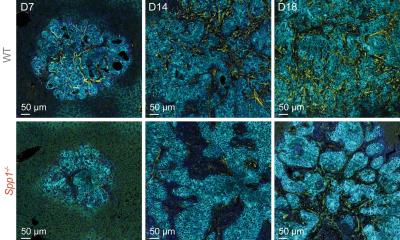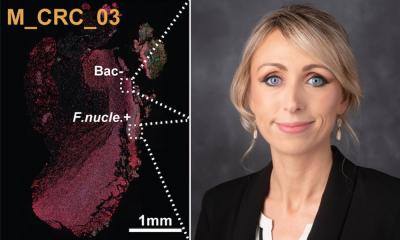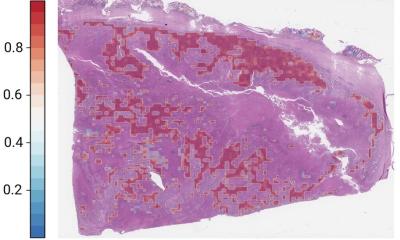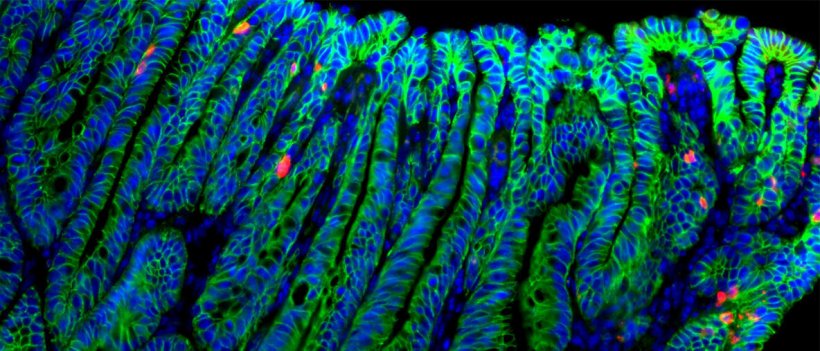
Source: Marianne Lähde
News • Tumor growth
New insights into colorectal cancer
Researchers have found a surprising effect of the stem cell-regulating growth factor R-spondin in intestinal cancer. R-spondin, which enhances the growth of healthy cells in the gut, suppresses the growth of intestinal adenoma cells, thus reducing the formation of intestinal tumors.
Colorectal cancer constitute the third most common cancer in the Western world. Their incidence constantly increases as the population ages, and despite recent advances in colorectal cancer therapy, the cancer metastasizes in every third of colorectal cancer patients, and a significant part of these patients eventually die from the disease.
Several mutations in the DNA of gut epithelial cells are critical for initiation and growth of colorectal cancer. Of these, the adenomatous polyposis coli (APC) gene mutation is the most common in colorectal cancers. This mutation activates cell proliferation, thus enhancing tumor growth.
APC also regulates the intracellular Wnt signaling pathway that is needed for the constant renewal of the gut epithelium. Among the hot topics in the field of stem cell research have been the Wnt-agonists, R-spondins, several of which are critical for the function of the intestinal stem cells and the regeneration of intestinal epithelium. R-spondins have been considered to drive proliferation of intestinal cancer cells, thus it has been speculated that their inhibition could figure in therapeutic strategies of the future.
However, academy professor Kari Alitalo and his doctoral students Marianne Lähde and Sarika Heino at the University of Helsinki challenged this concept and took an opposite approach in their studies. In their new publication in Gastroenterology, they show that R-spondin treatment reduces the growth of intestinal tumors (adenomas) in the early phase of colorectal cancer development. “Based on this finding, we provide a potential novel rationale for the treatment of colorectal adenomas, especially for Familial Adenomatous Polyposis patients whose APC mutations are inherited. R-spondin acts by slowing the proliferation of the tumor cells and simultaneously by enhancing the function of the healthy epithelial cells in the gut. Thus, the normal cells gain a competitive advantage over the tumor cells”, says Marianne Lähde.
Gene therapy reduced the growth of intestinal adenoma cells
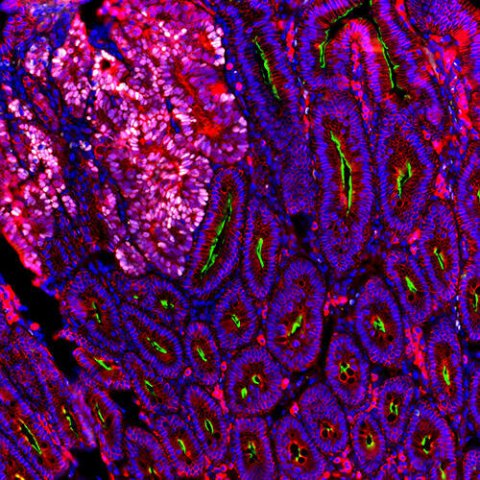
The researchers developed a virus vector-mediated gene therapy strategy, in which the production of R-spondin 1 can be induced from the liver into the blood stream and delivered all over the body.
When healthy mice were injected with the vector, it enhanced the growth and renewal of the intestinal epithelium, as expected. Surprisingly, however, when the vector was given to intestinal tumor-bearing mice, the number of the tumors was remarkably decreased and the mice lived significantly longer than their counterparts without therapy.
When the finding was further analyzed at the cellular level, the researchers found that R-spondin suppressed the growth and proliferation and promoted apoptosis of the tumor cells, simultaneously supporting the renewal of the healthy intestinal epithelial cells.
The R-spondin treated tumors were further evaluated by a gastrointestinal pathologist, who found that the longer the R-spondin treatment was continued, the more the tumor histology reminded the structure of the healthy intestine.
“According to these results, we can conclude that R-spondin 1 gives healthy intestinal epithelial cells a growth advantage over tumor cells. Following this, the healthy cells of the intestine take over the tumor cells, most of which are eventually expelled and possibly even lost with the faeces,” says Marianne Lähde, the first author of the study.
These results are completely new and unexpected, and it has surprised many experts in the field of stem cell research. Based on the new findings, possible new treatment strategies may be considered, especially for patients suffering from heritable APC mutations.
Source: University of Helsinki
25.09.2020



